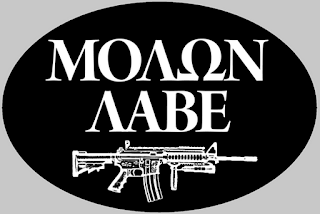Background
The OECD is an international organization, established in 1961, of thirty countries (Australia, Austria, Belgium, Canada, Czech Republic, Denmark, Finland, France, Germany, Greece, Hungary, Iceland, Ireland, Italy, Japan, Luxembourg, Mexico, Netherlands, New Zealand, Norway, Poland, Portugal, Slovakia, South Korea, Spain, Sweden, Switzerland, Turkey, United Kingdom, United States) committed to democracy and the market economy. The OECD collects economic and social data, monitors trends, analyses and forecasts economic developments, researches social changes or evolving patterns in areas such as trade, environment, agriculture, technology, taxation and publishes more than 150 new titles in the fields of economics and public policy a year.
The Organization provides a setting where governments compare policy experiences, seek answers to common problems, identify good practice and coordinate domestic and international policies. The Development Assistance Committee (DAC) is the principal body through which the OECD deals with issues related to co-operation with developing countries. DAC, like many other bodies working in the field of development, argues that one of the greatest challenges faced by countries trying to develop politically, economically and socially is insecurity and conflict: security and development are inextricably linked and mutually reinforcing. With this in mind, the OECD in 2005 produced a set of Guidelines for Security Sector Reform and Governance, which reviews good practices on Security System Reform to help developing countries address their public security systems overall, including the functioning of police and justice systems, civilian control of the armed forces, and protection of human rights.
In July 2007, after a two-year consultative process, OECD-DAC published the Handbook on Security System Reform: Supporting Security and Justice as a practical guide for those working to address insecurity, offering advice on designing, implementing, monitoring and evaluating Security Sector Reform (SSR) programmes with different institutions, including the police, intelligence services and the military. The objective is to bridge the gap between policy and practice and ensure a more coherent and coordinated approach by all of the different actors and departments involved with SSR. The handbook emphasises the benefits of an integrated approach to SSR in post-conflict situations, noting clear links between SSR and programmes for the disarmament, demobilization and reintegration of ex-combatants (DDR), and small arms and light weapons (SALW) control, as well as with other peacebuilding activities such as transitional justice initiatives. Such projects could be used as entry points for the implementation of SSR programmes and the formulation of national action plans. This may also work in reverse: the timing of programmes to reduce the number of weapons in civilian hands needs to be closely linked to how well DDR and SSR initiatives are progressing. The handbook also points out that conducting inventories of weapons stockpiles, ensuring they are secure, and destroying surplus stocks are important linkages between SSR and small arms control and so should be included as measures in both types of programmes and can serve as mutual entry points. SSR is also linked to small arms control in the context of the battle against terrorism, organized crime and illicit trafficking. Cross-border cooperation and coordination between programmes are therefore recommended.
For the purposes of the handbook, small arms control is taken to include the development of laws, regulations and administrative procedures to control the production, export, import and transit of small arms and light weapons., the development of institutional structures for policy guidance, research and monitoring, stockpile management and security, destruction of excess SALW, public awareness campaigns, voluntary surrender and regional and subregional cooperation and information exchange
Armed Violence Reduction
A comprehensive OECD Armed Violence Reduction (AVR) policy paper was endorsed by the OECD DAC in January 2009 after two years of preparation. This OECD endorsed publication is the first comprehensive account of armed violence reduction. It identifies a number of significant emerging trends. Firstly, conflict and crime are increasingly linked. Secondly, levels of armed violence are a severe challenge in many non-development countries. Thirdly, increasing youth populations in the global South and the emergence of ungoverned urban spaces and youth gangs are a growing reality in many parts of the world. Alongside this, there are increasing links between local, national, regional and global security issues, for example through the trafficking of drugs, arms and or people. The policy paper presents a number of well-researched avenues that can help respond to the above challenges and ultimately help enable development.
Based on the policy paper the OECD DAC is now in the process of developing practical programming notes on a range of key AVR issues. In this regard AVR programming notes on urban violence and youth violence are currently being developed. Work on developing theses programming notes has now commenced and it is envisaged that complete draft programming notes will be available for review by the end of 2009. A comprehensive mapping of AVR programmes is also due to commence in the coming months. Based on the results of the mapping exercise a number of AVR programmes will be chosen for more in-depth evaluation in 2010 in order to increase knowledge about what works and why.”
http://www.poa-iss.org/RegionalOrganizations/13.aspx
****************************************************************************
The OECD is an international organization, established in 1961, of thirty countries (Australia, Austria, Belgium, Canada, Czech Republic, Denmark, Finland, France, Germany, Greece, Hungary, Iceland, Ireland, Italy, Japan, Luxembourg, Mexico, Netherlands, New Zealand, Norway, Poland, Portugal, Slovakia, South Korea, Spain, Sweden, Switzerland, Turkey, United Kingdom, United States) committed to democracy and the market economy. The OECD collects economic and social data, monitors trends, analyses and forecasts economic developments, researches social changes or evolving patterns in areas such as trade, environment, agriculture, technology, taxation and publishes more than 150 new titles in the fields of economics and public policy a year.
The Organization provides a setting where governments compare policy experiences, seek answers to common problems, identify good practice and coordinate domestic and international policies. The Development Assistance Committee (DAC) is the principal body through which the OECD deals with issues related to co-operation with developing countries. DAC, like many other bodies working in the field of development, argues that one of the greatest challenges faced by countries trying to develop politically, economically and socially is insecurity and conflict: security and development are inextricably linked and mutually reinforcing. With this in mind, the OECD in 2005 produced a set of Guidelines for Security Sector Reform and Governance, which reviews good practices on Security System Reform to help developing countries address their public security systems overall, including the functioning of police and justice systems, civilian control of the armed forces, and protection of human rights.
In July 2007, after a two-year consultative process, OECD-DAC published the Handbook on Security System Reform: Supporting Security and Justice as a practical guide for those working to address insecurity, offering advice on designing, implementing, monitoring and evaluating Security Sector Reform (SSR) programmes with different institutions, including the police, intelligence services and the military. The objective is to bridge the gap between policy and practice and ensure a more coherent and coordinated approach by all of the different actors and departments involved with SSR. The handbook emphasises the benefits of an integrated approach to SSR in post-conflict situations, noting clear links between SSR and programmes for the disarmament, demobilization and reintegration of ex-combatants (DDR), and small arms and light weapons (SALW) control, as well as with other peacebuilding activities such as transitional justice initiatives. Such projects could be used as entry points for the implementation of SSR programmes and the formulation of national action plans. This may also work in reverse: the timing of programmes to reduce the number of weapons in civilian hands needs to be closely linked to how well DDR and SSR initiatives are progressing. The handbook also points out that conducting inventories of weapons stockpiles, ensuring they are secure, and destroying surplus stocks are important linkages between SSR and small arms control and so should be included as measures in both types of programmes and can serve as mutual entry points. SSR is also linked to small arms control in the context of the battle against terrorism, organized crime and illicit trafficking. Cross-border cooperation and coordination between programmes are therefore recommended.
For the purposes of the handbook, small arms control is taken to include the development of laws, regulations and administrative procedures to control the production, export, import and transit of small arms and light weapons., the development of institutional structures for policy guidance, research and monitoring, stockpile management and security, destruction of excess SALW, public awareness campaigns, voluntary surrender and regional and subregional cooperation and information exchange
Armed Violence Reduction
A comprehensive OECD Armed Violence Reduction (AVR) policy paper was endorsed by the OECD DAC in January 2009 after two years of preparation. This OECD endorsed publication is the first comprehensive account of armed violence reduction. It identifies a number of significant emerging trends. Firstly, conflict and crime are increasingly linked. Secondly, levels of armed violence are a severe challenge in many non-development countries. Thirdly, increasing youth populations in the global South and the emergence of ungoverned urban spaces and youth gangs are a growing reality in many parts of the world. Alongside this, there are increasing links between local, national, regional and global security issues, for example through the trafficking of drugs, arms and or people. The policy paper presents a number of well-researched avenues that can help respond to the above challenges and ultimately help enable development.
Based on the policy paper the OECD DAC is now in the process of developing practical programming notes on a range of key AVR issues. In this regard AVR programming notes on urban violence and youth violence are currently being developed. Work on developing theses programming notes has now commenced and it is envisaged that complete draft programming notes will be available for review by the end of 2009. A comprehensive mapping of AVR programmes is also due to commence in the coming months. Based on the results of the mapping exercise a number of AVR programmes will be chosen for more in-depth evaluation in 2010 in order to increase knowledge about what works and why.”
http://www.poa-iss.org/RegionalOrganizations/13.aspx
****************************************************************************



No comments:
Post a Comment